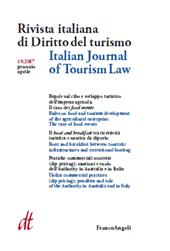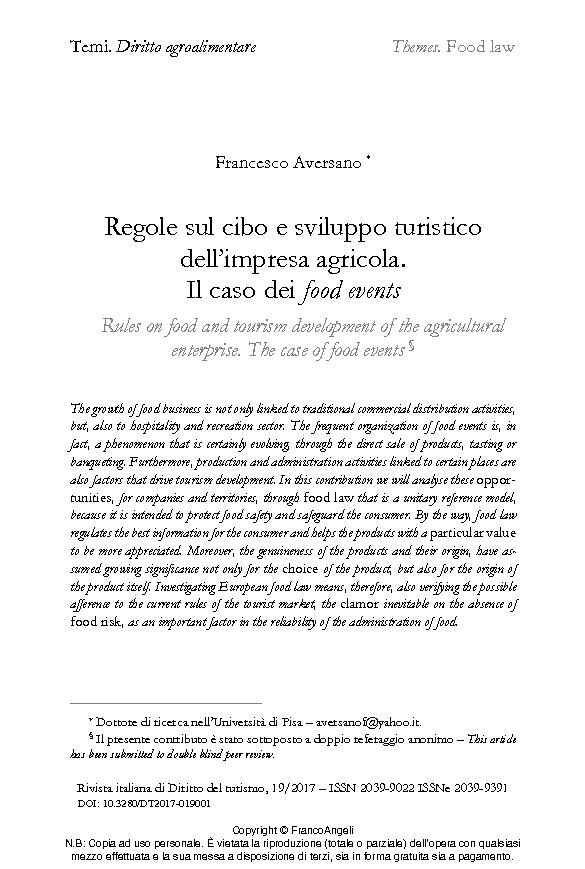Regole sul cibo e sviluppo turistico dell'impresa agricola : il caso dei food events
7-37 p.
La food law quale modello di riferimento per il turismo alimentare. I regimi di qualità e la "tradizionalità" del cibo. Specificità dell'informazione al consumatore e vantaggi per l'impresa. Potenzialità dell'impresa agricola nel settore del food. La "multifunzionalità" nella lettura giurisprudenziale. Attività dell'impresa e obblighi di natura alimentare. I food events: opportunità per l'impresa e per il territorio. [Testo dell'editore].
The growth of food business is not only linked to traditional commercial distribution activi-ties, but, also to hospitality and recreation sector. The frequent organization of food events is, in fact, a phenomenon that is certainly evolving, through the direct sale of products, tasting or banqueting. Furthermore, production and administration activities linked to certain places are also factors that drive tourism development. In this contribution we will analyse these opportunities, for companies and territories, through food law that is a unitary reference model, because it is intended to protect food safety and safeguard the consumer. By the way, food law regulates the best information for the consumer and helps the products with a particular value to be more appreciated. Moreover, the genuineness of the products and their origin, have assumed growing significance not only for the choice of the product, but also for the origin of the product itself.
Investigating European food law means, therefore, also verifying the possible afference to the current rules of the tourist market, the clamor inevitable on the absence of food risk, as an important factor in the reliability of the administration of food. [Publishers' text].
Fait partie de
Rivista italiana di diritto del turismo : 19, 1, 2017-
Articles du même numéro (disponibles individuellement)
-
-
Informations
Code DOI : 10.3280/DT2017-019001
ISSN: 2039-9391



